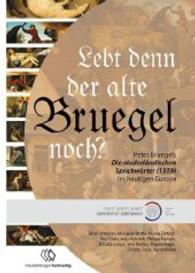- ホーム
- > 洋書
- > 英文書
- > History / World
Full Description
Colonial Scholasticism: Interpreting Nature, Society, and Philosophy in Spanish America explores the enduring influence of scholasticism beyond Europe, tracing its evolution in the intellectual and educational institutions of colonial Latin America.
Far from being a mere extension of European thought, colonial scholasticism developed in response to new cultural, political, and scientific contexts, engaging with both local realities and global philosophical traditions. This volume examines the emergence and adaptation of scholastic philosophy in Spanish America, from the establishment of schools and universities to the development of novel approaches to law, science, and theology. It explores how the works of Aristotle and his ancient and medieval followers continued to shape intellectual discourse in the American world. At the same time, it highlights how these traditions were reinterpreted in dialogue with Indigenous knowledge, social structures, and the challenges posed by colonial rule. Bringing together contributions from leading scholars in the field, Colonial Scholasticism sheds light on a neglected chapter in the history of Western philosophy. It challenges Eurocentric periodisations that confine scholasticism to the Middle Ages and demonstrates its continued relevance in shaping philosophical and scientific thought well into early modernity.
This book is an essential resource for historians of philosophy, scholars of Latin American intellectual history, and all those interested in the global dimensions of scholasticism.
Contents
List of Figures
List of Contributors
0. Introduction
1. Shaping Philosophy in 16th Century New Spain: Sea Explorations, Educational Institutions, and the Case of Alonso de la Veracruz
Virginia Aspe Armella
2. Alonso de la Veracruz's Take on the Conceivability of Prime Matter
Nicola Polloni
3. The Jesuit José de Acosta's Epistemological Revision of Scholasticism
Francisco Castilla Urbano
4. Reconstructing Library Collections: Reading Philosophy in Mexico City and Puebla in the 16th and 17th Centuries
Lydia Deni Gamboa
5. Phlegmatic, Melancholic and Sanguine: The Indigenous of Peru in Three 'Indian' Texts, 16th-17th Centuries
Germán Morong Reyes
6. Masculinities in Colonial America: Medical, Legal, and Theological Knowledge and the Construction of the Indigenous Male Body During the 16th Century
Alvaro Ojalvo Pressac
7. Dictates on Justice and Law: Classrooms and Manuscripts of the New Kingdom of Granada
Carlos Arturo Arias Sanabria
8. Academic Freedom and Tradition in Philosophy: Miguel De Viñas S.I. Philosopher in Chile in the 18th Century
Roberto Marconi
9. Heavenly Bodies and American Enlightenment: The Case of Manuel Antonio Talavera
Abel Aravena Zamora and Francisco Cordero Morales
Index






